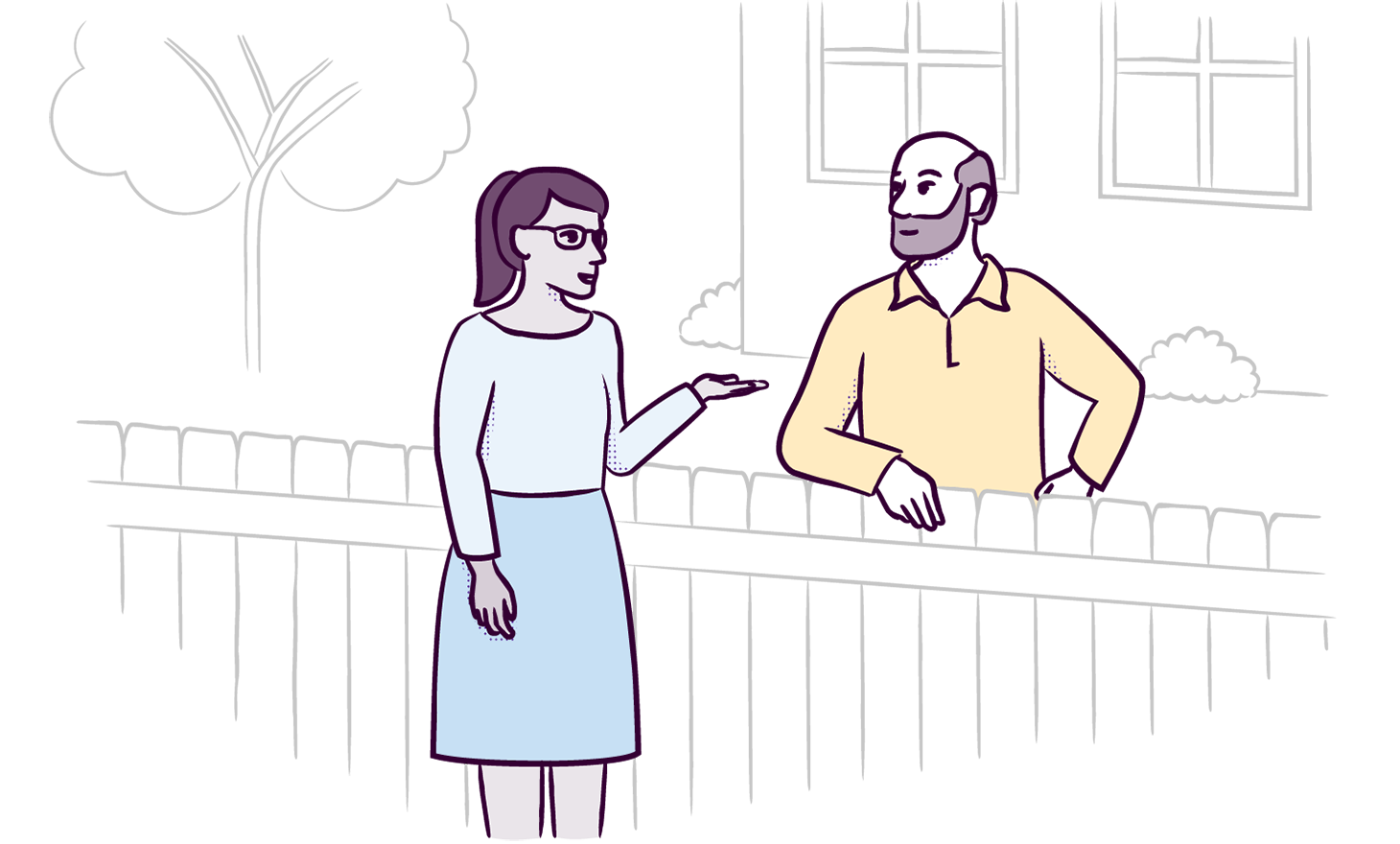
Understanding feelings of loneliness

You've probably felt lonely or isolated at different points in your life. Feelings of loneliness are personal and affect everyone differently. Some people can spend a lot of time by themselves without feeling lonely. Others may find it challenging to be alone even for a short time.
When you’re lonely, you may find that you feel alone even when you’re with friends or groups of people. You may feel like no one understands you. You may start avoiding social events because the thought of spending time with people exhausts you. You might feel down or worthless, start spending more time on social media, or notice that some unhealthy habits have increased. There are things you can do to overcome these feelings before it becomes a chronic issue.
On this page, you'll find services that can help you with what you're going through, plus helpful information around understanding and managing loneliness.

Are you struggling to cope?
If you’ve reached a point where you can’t deal with the loneliness or feel like there’s no way out, there is help available.
Services that can help
If you need some support, or aren't sure where to start, there are a few options available:
- Try the Head to Health quiz. It can help you understand what you're experiencing and point you to suitable services and resources.
- Call Head to Health for free on 1800 595 212 for mental health information and referral.
- Try one of the services listed below. There is a wide range of options, no matter the kind of support you’re looking for. You can choose which suits you best.

What causes loneliness
Loneliness is a response to social and environmental triggers. Some people describe loneliness as the feeling they have when they can’t meet their need for social contact and relationships.
Loneliness or isolation can be influenced by something going on in your life, especially if there have been some big changes, such as:
- losing a loved one
- going through a breakup, separation or divorce
- moving out of home for the first time
- switching schools or jobs, retiring from work, or losing your job
- becoming a parent for the first time
- moving to a new place where you don’t have family, friends or community
- experiencing language or cultural barriers in your community.
Other reasons you might feel lonely or isolated include being stressed about something, being bullied, having a physical disability, going through depression or anxiety, and having a chronic illness. You can also feel extra lonely at certain times of the year such as Christmas, Valentine’s Day, and other occasions where people usually get together with loved ones. Whatever the cause, loneliness is a very personal experience.
When does loneliness become a problem?
Feeling lonely or isolated isn’t always a sign of something more serious. If you’ve experienced a change or event that caused these feelings—such as losing someone or ending a relationship—they will often go away or improve once you’ve had time to adapt to your new situation. But if you've been feeling lonely and isolated for a long time, or it’s started impacting your daily life and how you function, it can be a problem.
A few signs that you may need to seek support are:
- experiencing physical symptoms such as headaches, feeling ill or tired, or having unexplained pains
- having panic attacks, feeling anxious or paranoid
- feeling constantly exhausted and lacking motivation to do anything
- having sleep problems such as sleeping too much or having trouble falling asleep
- putting on weight, losing weight, or losing your appetite
- having negative thoughts about yourself and feeling like you don’t have any confidence
- feeling negative about the future
- drinking lots of alcohol, misusing medication, or taking drugs
- withdrawing from the important people in your life.
Is it loneliness, depression, or something else?
If your feelings of loneliness are constant or overwhelming, it may be related to a more serious underlying mental health condition. Depressive disorders and anxiety disorders, for example, can often be associated with feelings of loneliness and isolation. Physical health issues such as chronic pain and illness can also impact your mood and mental health.
Learn more about mental health conditions and disorders.

Reaching out for help
If you’re concerned that your feelings of loneliness or isolation might be a sign of something more serious, or you’re finding it hard to manage, talk to your GP. If you don’t have one, you can use our Find a GP tool.
Coping with loneliness
Feeling lonely can have a negative impact on your mental health, especially if you've felt lonely for a long time. Taking steps to look after your wellbeing can help reduce your loneliness in the long term. If you do find yourself feeling lonely or isolated often, there are some steps you can take:
Having lots of friends and social contacts doesn’t mean you can’t or won’t feel lonely. You can often feel isolated and lonely even when you’re surrounded by people.
For many people, feeling lonely can be linked to low self-esteem or self-confidence. If this is your experience, it’s important to try to improve your relationship with yourself. You can start by trying to do activities you enjoy by yourself. This could be going for a walk, cooking, spending time on a hobby, or even doing crossword puzzles — whatever you’re happy to do on your own.
If you live alone, there are things you can do that can help you feel less lonely. You could have the radio or a podcast on in the background, or any other sounds you find soothing and comforting. Some people find spending time with a pet is helpful. It’s important to try different things to figure out what works best for you. It’s different for everyone.
When you’re feeling lonely and isolated, it can be hard to connect with other people. But sometimes that’s exactly what you need to do. If you have someone to reach out to, such as a family member, friend, partner, or a neighbour, that may help you feel better.
You don’t have to talk about what you’re going through; it could just be a general conversation. Also, it doesn’t have to be face to face; it could be a text or an email, to start with. If the person you reach out to is also struggling, they will really appreciate you connecting with them.
Not everyone has someone that they can reach out to. If you're in this situation, there are ways for you to connect with people either in person or online. You could look for volunteering opportunities, join your local community club or centre (if you have one), or join an online group for your special interest. Connecting with people you don’t know in this way can lead to meaningful friendships. We have more information on connecting with others.
When you feel lonely or isolated, you may not feel like being social or doing your usual activities, but these activities can offer you moments of joy and a break from how you're feeling. It could be physical activity, connecting with people, or spending time on a hobby.
If you’ve felt lonely for a long time, it may feel confronting talking to someone. But it can be a great way to put things in perspective. You don’t have to rush into it. Share only as much as you want, and most importantly, find the right person to talk to. Telling someone about what’s making you feel lonely can help you understand your feelings. It can also give you a chance to ask for help with the situation or trigger that’s making you feel this way. We have helpful tips on how to start the conversation.
You can't control everything that happens in your life, but there are things you can do to get through tough times. Learn more about coping with unexpected life events.

Supporting someone else
It can be hard seeing someone you care about going through a tough time. If you're worried about them, it’s important to let them know. Check in and see how they're doing. Knowing you care about them might be all they need, or they might need your support to get help. If you're not sure where to start, we have helpful tips on how to start the conversation.

Looking for more information and services?
You can browse a wider range of resources on Head to Health with our search tool.

